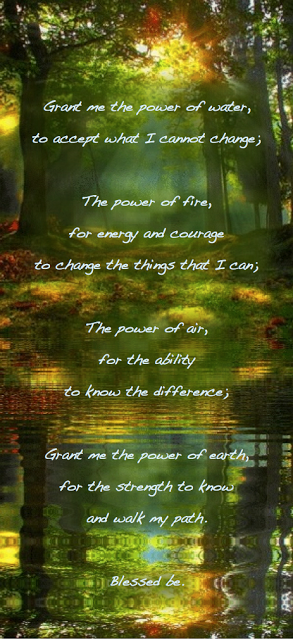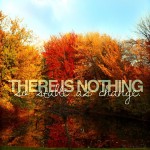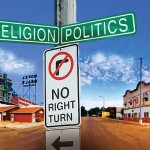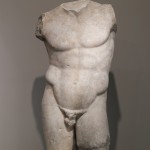 For many years after leaving Christianity, I simply did not pray. Even after becoming Pagan, it did not make it a part of my practice. I’ve written about my struggle with petitionary prayer before here. As a Naturalistic Pagan, my challenge arises not only from questions of theodicy but also from the belief that God/dess is incapable of answering prayers. For many years, I left petitionary prayer out of my practice altogether.
For many years after leaving Christianity, I simply did not pray. Even after becoming Pagan, it did not make it a part of my practice. I’ve written about my struggle with petitionary prayer before here. As a Naturalistic Pagan, my challenge arises not only from questions of theodicy but also from the belief that God/dess is incapable of answering prayers. For many years, I left petitionary prayer out of my practice altogether.
HumanisticPaganism contributor M.J. Lee has since helped me to see petitionary prayer in a new way. She has written: “I see petitionary prayer as an acknowledgment of the limitations of human action and will. […] I don’t think Nature is that which can hear and choose to answer or ignore our prayers. But I wonder if prayer might make us more open to grace, more aware and appreciative of when it touches our lives.”
Several years ago, while I was still abstaining from prayer, I came across a prayer that I felt like I could pray. It was this prayer that led me to the Unitarian Universalist church. My legal assistant had this prayer printed on a little piece of paper taped to her computer:
Let me not pray to be sheltered from dangers but to be fearless in facing them.
Let me not beg for the stilling of my pain but for the heart to conquer it.
Let me not look for allies in life’s battlefield but to my own strength.
Let me not crave in anxious fear to be saved but hope for the patience to win my freedom.
Grant me that I may not be a coward, feeling your mercy in my success alone;
But let me find the grasp of your hand in my failure.
Here was a prayer that gave expression to the understanding of prayer as an act which changes, not God or the world, but the person praying. And yet, the last line makes space for the inexplicable, yet undeniable, experience of grace.
I tracked the prayer down and learned that it was written by Rabindranath Tagore, a Bengali poet, and that it had been republished in the Unitarian Universalist hymnal Signing the Living Tradition. (Rabindranath Tagore poem was originally published his 1916 collection Fruit Gathering. The Kindle edition can be downloaded for free at Amazon.) I was instantly curious about a church that would embrace such a prayer, and eventually I located and went to my local UU congregation. I think I might never have gone to the UU if it hadn’t been for that prayer.
This morning I heard another, even more powerful, prayer, which brought tears to my eyes. I was listening to Krista Tippett’s book Speaking of Faith. Tippett has an NPR radio show, On Being, which you have probably heard of. The show used to be called Speaking of Faith. Tippett also wrote a book by the same name, in which she discusses her life and her work on the show. The book is also available as an audiobook and in an Audible audio edition (which is what I was listening to this morning). I highly recommend the audio version. Tippett has a wonderful voice and her reading brings life to her text. In addition, the audio version includes excerpts from her interviews with the interviewees themselves speaking. And it was to one such excerpt of an interview I was listening to today.
Elie Wiesel is a concentration camp survivor and the author of Night. Wiesel wrote this prayer in his journal and later published it in his book, One Generation After. You can hear Wiesel read it in Tippett’s audiobook or in Tippett’s interview of him at On Being. I highly recommend listening to the audio. This is the prayer of a man who has witnessed unspeakable horrors, a man’s whose most famous work (Night) is often cited as “evidence” of the death of God, and who has put God on trial in own his writings. But it is also the prayer of a man with a deep sense that the discussion should not end with God’s conviction.
I no longer ask you for either happiness or paradise;
all I ask of You is to listen and let me be aware of Your listening.
I no longer ask You to resolve my questions,
only to receive them and make them part of You.
I no longer ask You for either rest or wisdom,
I only ask You not to close me to gratitude,
be it of the most trivial kind, or to surprise and friendship.
Love? Love is not Yours to give.
As for my enemies, I do not ask You to punish them or even to enlighten them;
I only ask You not to lend them Your mask and Your powers.
If You must relinquish one or the other,
give them Your powers. But not Your countenance.
They are modest, my requests, and humble.
I ask You what I might ask a stranger met by chance at twilight in a barren land.
I ask you, God of Abraham, Isaac and Jacob,
to enable me to pronounce these words without betraying the child that transmitted them to me:
God of Abraham, Isaac and Jacob, enable me to forgive You
and enable the child I once was to forgive me too.
I no longer ask You for the life of that child, nor even for his faith.
I only beg You to listen to him and act in such a way that You and I can listen to him together.















